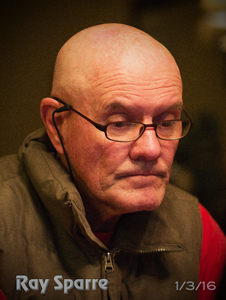
Insightful Musings on theScriptures
by
Raymond P. Sparre
Northwest University class of '67
Good evening, dear people.
It’s been a full day. I did some more work on that project in Portland…installing the perlins. Now Becki and I are about to run off to visit some friends. One has just returned from the hospital having had some cancer surgically removed.
Blessings on your evening.
Love, Dad/Ray.
That is a valid observation by Solomon. I don’t wish to argue with him. However, I think the same principle arranges better in its practical cause-and-effect order. Here’s what I mean for the first half: “He who fears the LORD walks uprightly.” It cannot be otherwise. A person cannot deliberately do stupid and/or violate the known rules of God when he knows that the Absolute Sovereign is absolutely monitoring every action, word, and thought he makes. In fact, when a person is found to engage in deliberate sin, you don’t have to wonder if that person truly FEARS THE LORD. He clearly doesn’t—at least not at that particular point. How can we over-emphasize the lesson value offered here? Personal righteousness (the practical results of FEARING THE LORD), is not something to be done on a part-time basis. “Well,” someone might argue, “Maybe he doesn’t really FEAR THE LORD all the time—but he FEARS THE LORD MOST OF THE TIME.” Sorry. That bucket will not hold water.
The second half of the proverb can be handled the same way: “He who despises the LORD walks deviously.” It cannot be any other way. If a person does not subscribe to an absolute moral code from outside himself, he will always resort to the default moral code from within himself. The results can be ugly beyond imagination—especially when we identify his internal code as the NATURAL SIN NATURE. That is the orientation cited in Proverbs 14:12: “There is a way that seems right to a man, but in the end it leads to death.”
David kicks off Psalm 14 by taking these ideas to their negative extreme: “The fool says in his heart (another case of self-talk), ‘There is no God.’ They are corrupt, their deeds are vile (sounds kind of devious); there is no one who does good.” This fool thinks people are fools who FEAR THE LORD since there is no such thing as a LORD. Of course, that very thinking is what makes this guy a fool. It sure is foolish to be a fool—when it’s so unnecessary.